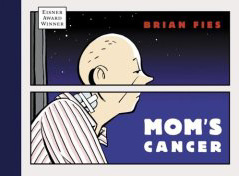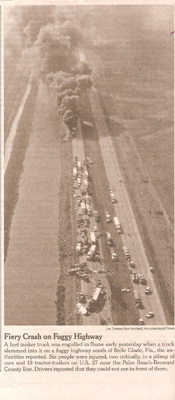In which we have a look at this week's
New York Times Book Review.
It has become clear to me that I undertook this weekly review
of the Book Review in order to find out what the Review is about.
What's it for? Why do people read book reviews, and for whom are they written? What are
the elements of a good book review? None of these questions were present to me
when I started the feature last fall, but they've emerged as I've paid close
regular attention to the publication, reading all of the reviews and not just
the ones that interest me.
The principal purpose of a book review, it seems pretty clear,
is to provide readers with some idea of what the book under review is like, and
there are two reasons why people want this idea. The first, and more innocent,
is the search for recommendations. "I'm looking for a book to read; what do you
recommend?" I would say that no more than one person in fifty is such a reader.
More common, and less innocent, is the search for inside information. "What can
I learn about that book without reading it?" This information may or may not be
used to enhance such a reader's conversation, but it is acquired with little or
no intention of making a purchase. The Book Review allows its readers to
stay roughly current with the latest important books - that's the idea, anyway.
Defining "important" involves demographic calculations that don't interest me
right now; on the whole, I think that the Times does a fairly good job of
fulfilling its mission. Bearing in mind that no source of buzz can be
comprehensive, the Book Review is a reliable provider of the commodity.
Book reviews have an important afterlife, however, and I often
wonder how conscious reviewers are of it. In time, they become historical
documents that reflect the Zeitgeist in which they were written. What did
people think of Gone With The Wind when it was published? The easiest way
to find out is to collect book reviews and seek a consensus. What this research
will show, of course, is what professionally literate writers thought of the
book, but I think that we can depend on editors to know their markets. Most book
reviews that appear in The New York Review of Books would be wildly out
of place in the Book Review. They're much longer, for one thing. They're
more demanding, and they focus on more demanding books. And they're much less
ephemeral than the reviews in the Book Review.
It is important to note the difference between a book review
and a book report. Book reports are pedagogical devices designed to test
literacy skills, and teachers grade the students who write them, not the writers
of the subject books. I fear that many book reviewers, doubtless adepts of the
form in elementary school, have not fully realized that grown-up readers are not
looking for book reports.
Fiction & Poetry
First, the poetry. Aliki Barnstone has published a new
translation of the poems of C P Cavafy, the Alexandrian Greek (1863-1933) so
often quoted by Lawrence Durrell. In his exemplary review, Brad Leithauser makes
a case for Cavafy, concluding with a roster of poets whom he has profoundly
influenced. The review grips the essence of Cavafy's aesthetic:
The poems themselves are like little rooms; most are of modest
length, most are concerned with either private action or with scholarship's
interior forays. Cavafy certainly was no nature poet. His poems give little
indication that he ever saw with any clarity a tree or an animal or -
despite Alexandria's maritime history - a seascape.
Mr Leithauser praises the translations, but explains that he still prefers
earlier work by Edmund Keeley and Philip Sherrard, because their renderings give
a better sense of "how Cavafy put his poems together."
Joyce Carol Oates's review of Some Fun: Stories and a
Novella, by Antonya Nelson, is a classic book report. The stories and the
novella are summarized - rewritten, in effect. Fragments of Ms Nelson's prose
don't quite convey the feel of her prose; they're cut off too soon. I am not entirely sure that Ms
Oates liked the book.
The stories of Some Fun are so similar in tone, characters
and situation that they tend to overlap in the memory like a single story
with numerous, proliferating subplots. This is domestic realism, with
something of the aura, jarring and yet convincing, of the TV sitcom.
I think that that's positive.
Donald E Westlake's review of John Mortimer's new book,
Quite Honestly, belongs to a genre of reviews that I have yet to find the
name of. Perversity has something to do with its composition - the editor's or
the reviewer's. Why does Mr Westlake feel called upon to make a big brouhaha (in
a half-page review, no less) about differences between British and American
English? Is it to disguise
... the problem that I'm having here? If I tell you much about
the plot I'll give the whole thing away. There's an inevitability to it, to
tell you the truth. Not exactly the inevitability of the Greek tragedies, a
little more clockwork than that - which sounds awful, but isn't.
How about the inevitability of farce? Say "farce," and you don't have to
apologize for saying something that sounds awful but isn't? This would have been
a perfect occasion to some up the distinctly British type of funny novel at
which Mr Mortimer is a pastmaster.
Leonora Todaro's review of Rose of No Man's Land, by
Michelle Tea, is a much better piece.
With Rose of No Man's Land, Tea is trying to do for
working-class teenage lesbians what S E Hinton's Rumble Fish and
The Outsiders did for greasers and street-brawling tough guys in the
1970s and 80s: to let them be heard and felt. ... with this novel, Tea
moves forward into her imagination, reining in her story so it can buck
free.
That's not only well done, but it
persuades me, not so much to order the book, but to listen for other comments on
what might, despite it area of interest, be a very good read.
This leaves David Leavitt's book-reportish review of The
Night Watch, by Sarah Waters. It is difficult to resist the impression that
Mr Leavitt's job is to say something nice about a cohabitant of his ghetto -
another writer of "gay fiction." He tries, valiantly, counting, perhaps on the
reader's coming to an early decision that he likes the book when in fact it's
clear that he sees it as a failure.
The problem is Water's decision to use reverse chronology. ...
Indeed, by the time we reach the end (or is it the beginning?) of this
otherwise estimable and moving book, we know so much more than the
characters that our knowledge dilutes the impact of what should be the most
dramatic section. For all the vigor and intensity of its prose, The Night
Watch leaves us with the sense that both the reader's experience and the
characters' lives have been manipulated to suit the author's design.
To which I'd add that I'm only too happy to be manipulated by a writer, as long
as I'm never aware of it.
Nonfiction
I hope you've got a while.
On the cover, there's Paul Berman's cautious assessment of
Francis Fukuyama's America at the Crossroads: Democracy, Power, and the
Neoconservative Legacy. With this book, Mr Fukuyama withdraws his allegiance
to the neoconservative program that is ruining the country and parts of the
world. One is reminded of David Brock's
Blinded By The Right.
It isn't always nice when former opponents come to share your point of view; you
want to be sure. And Mr Berman is not sure.
The neoconservatives, he suggests, are people who, having
witnessed the collapse of Communism long ago, ought to look back on those
gigantic events as a one-in-a-zillion lucky break, like winning the lottery.
Instead, the neoconservatives, victims of their own success, came to believe
that Communism's implosion reflected the deepest laws of history, which were
operating in their own and America's favor - a formula for hubris. This is a
shrewd observation, and might seem peculiar only because Fukuyama's own "End
of History" articulated the world's most eloquent argument for
detecting within the collapse of Communism the deepest laws of history. He
insists in his new book that The End of History ought never to have
led anyone to adopt such a view, but this makes me think only that Fukuyama
is an utterly unreliable interpreter of his own writings.
Mary Roach has some quibbles with Annie Cheney's Body Brokers: Inside
America's Underground Trade in Human Remains, but she bestows the highest
imaginable honor:
Like Jessica Mitford's American Way of Death, this book's
combination of readability and investigative firepower will, one hopes, draw
the broad readership and outrage needed to instigate change.
Dominique Browning, the chief editor at House & Garden,
reviews Winifred Gallagher's House Thinking: A Room-By-Room Look at How We
Live, and in the process tells me exactly what I want to know: House
Thinking is as fizzily earnest as was Ms Gallager's The Power of Place
(1994).
Gallagher speaks to many of the professionals of house thinking
(thought they wouldn't think of themselves that way) - not just architects
but also behavioral scientists and environmental psychologists. And this is
where her book runs into trouble. There's something intriguing about a
subculture devoted to studying the way we live at home, but do we really
need a PhD to understand "environmental psychology's most important, and
deceptively simple, principle regarding home: yours should meet your
physical and psychological needs"?
In
another strong review, Erica Wagner all but trashes Fernanda Eberstadt's
Little Money Street: In Search of Gypsies and Their Music in the South of France,
and you ought to read the
piece for yourself.
You can learn a lot about Fernanda Eberstat in this book, and
perhaps more than the author intended. But if you too wish to go in search
of these Gypsies and their music, do as I did, and buy their CD.
Ouch! The other review that you have to read is Ron Powers's piece on Arnold
Weinstein's Recovering Your Story: Proust Joyce, Woolf, Faulkner, Morrison.
Before you know it, Weinstein is managing to make Marcel Proust,
James Joyce, Virginia Woolf, William Faulkner and Toni Morrison sound like
the editorial staff at Self magazine.
Funny stuff, and Mr Weinstein
comes across better than you'd think.
James Reston Jr's Fragile Innocence: A Father's Memoir of
His Daughter's Courageous Journey, gets a sympathetic review from Polly
Morrice, but it's not a particularly inviting one. I can't what it was the
Hillary Reston's, but a nonmedical term might be "permanent nightmare." Diane
Johnson reviews The Judgment of Paris: The Revolutionary Decade That Gave the
World Impressionism, by Ross King. There's a blooper: Ms Johnson writes that
it was Meissonier, not Manet, who led the revolt that founded the Salon des
Refusés. Otherwise, she gives this somewhat revisionist history moderately
good marks.
King doesn't miss the character flaws of any of his large cast,
and the effect is a meticulously detailed panorama not unlike one of
Meissonier's grandest battlefield scenes.
I may find myself reading this book. Moving right along through the Kings, Will
Blythe's review of Larry L King's In Search of Willie Morris: The Mercurial
Life of a Legendary Writer and Editor is pretty pungent, stressing Mr King's
complete lack of objectivity.
Appropriately for a book in which enough alcohol is consumed to
fill Long Island Sound, In Search of Willie Morris feels like a
reminiscence spilled over a long night sitting at the bar - rambling, bawdy,
score-settling, gossipy, partisan and sentimental with occasional bouts of
weeping. There are even a few places where King seems to have fallen asleep
next to his drink before lurching awake to resume his monologue.
Aside from making In Search of Willie Morris sound irresistible, that
passage makes me mourn the great days of Esquire, of which Mr Blyte was
literary editor for a spell.
On facing pages, Peter Beinart and Rick Lyman cover new books
about - what, exactly? Politics? Electoral Engineering? Process? Policy? Let me
begin by saying that I can't imagine why anyone would buy either Take It
Back: Our Party, Our Country, Our Future, by James Carville and Paul Begala
or Rebel-In-Chief: Inside the Bold and Controversial Presidency of George W
Bush. Mr Lyman wryly describes them as "fresh logs to stoke the nation's
partisan furnaces." Crashing the Gage: Netroots, Grassroots, and the Rise of
People-Powered Politics, by Jerome Armstrong and Markos Moulitsas Zúniga, by
contrast, sounds almost worthwhile in Mr Beinart's hands. I ask myself, however,
why the authors of this book aren't busy laying the foundations of a new party,
organized entirely differently and run by altogether different personnel. Their
book appears to stop just short of such audacity, but Mr Beinart catches a whiff
of it.
It's possibly no coincidence that Moulitsas, the founder of the
popular blog Daily Kos, did a stint in Silicon Valley. In his
complaints about the Democratic establishment, he sounds like the head of
Google describing General Motors: the party is slow, top-heavy and destined
for obsolescence unless it makes a radical change in its culture.
Mr Beinert dwells on the authors' concession that they don't know which "common
principles" are shared by Democrats. This is perhaps backward: it's the
Democratic leadership that ought to leading their supporties in a common
purpose.
If there's one book in this week's Review that I'm
definitely getting, it's Mozart's Women: His Family, His Friends, His Music,
by English conductor Jane Glover. It is wrong to see a "feminine" quality in
Mozart's music, when what's really there is an esteem for women. Reading Anthony
Tommasini's review, it occurred to me that there are two strains of heterosexual
men: those who really like women, and those who need women but don't like them.
(I'd further posit that women who only care for the latter type are doomed to
the same unhappiness that afflicts gay men who pursue straight lovers.) Mozart
was assuredly in the former camp, as the briefest reading of his X-rated letters
to Constanze make clear. Mr Tommasini praises Ms Glover's book but doesn't talk
about it much; instead, he retells its story and then winds up, incredibly, with
this:
Is it permissible any longer to say that only a woman could have
written this refreshing and valuable book?
No, Mr Tommasini, it is not permissible. I can't believe the thought occurred to
you.
At the other end of the musical spectrum - well, perhaps not
quite the very end - is Karen Schoemer's Great Pretenders: My Strange
Love Affair with '50s Pop Music, reviewed, not entirely favorably, by singer
Nellie McKay. Great Pretenders profiles seven pop singers who specialized
in "unspoken passion, earnest preachers at the altars of puppy love," among them
Patti Page, whose recording of "You Belong To Me" was a great favorite of mine
when I was about ten and just beginning to be interested in music. (Nowadays,
however, I'm likelier to listen to the great Yao Li sing it.
You can, too.)
Despite her reservations, Ms McKay concludes that Great Pretenders is
"a truly unique background to a grossly underappreciated era in American music."
Lucy Ellman doesn't care for My Father is a Book: A Memoir
of Bernard Malamud, by Janna Malamud Smith, and has no trouble saying why.
Smith should be asking why she would want to write a book about a
novelist when she seems to have so little idea of how or why fiction comes
into being.
I know that critiques of
American intelligence gathering is a hot and important topic, but David
Holloway's moderately favorable review of Spying on the Bomb: American
Nuclear Intelligence From Nazi Germany to Iran and North Korea, by Jeffrey T
Richelson, simply makes me want to turn the page. Mr Holloway does not convey an
idea of the book that he would have liked this one to be. Indeed I had a hard
time distinguishing what Mr Holloway, as a specialist in this area, was
reporting from what he might be interjecting. Reviews that try to tell a story
and pass judgment in the same passages often lose me.
All right, I've been at this for nearly three hours, and Short
Shrift is all that Pets in America: A History, by Katherine C Grier
(reviewed by Alida Becker) and Glory Road: My Story of the 1966 NCAA
Basketball Championship and How One Team Triumphed Against the Odds and Changed
America Forever [Oh, please!], by Don Haskins with Dan Wetzel
(reviewed by Gerald Eshkenazi), are going to get from me. Who slept with whom?!
Nor will I discuss Blake Eskin's Essay, "Books to Chew On." Is it permissible to
say that literal bibliophagy is a topic that doesn't belong in the Book
Review?
Like, I mean, Yikes.



